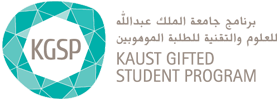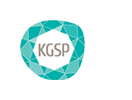Overview
The KGSP alumni network spans over 450 alumni total. With majority of KGSP students matriculating to KAUST following their undergraduate studies, the Program's Alumni Council and Lead works to facilitate and maintain connections between the alumni body.
Meet our current council leadership and stay connected for upcoming meetings and events.
Update your contact information for the to keep in touch on the most up-to-date announcements.
Have a job post to share or currently job hunting? Submit job postings or browse current openings on our job board.
Alumni News
Alumni Profile: Faisal Altassan
6/27/2024
In this KGSP Alumni Profile, we discuss the journey of Faisal Altassan (Cohort 6, UC Irvine, Electrical Engineering). As he recounts his professional journey from a startup in KAUST to his current role as a Robotics Engineer at NEOM, Faisal's passion for robotics and dedication to contributing to the future of Saudi Arabia shine through. From grappling with language barriers to embracing the fast-paced quarter system, Faisal reflects on the pivotal moments and mentors at the University of California, Irvine that guided his trajectory. Reflecting on his KGSP experience, Faisal acknowledges its profound impact on his personal and professional growth, offering sage advice to aspiring students: seize the moment and fearlessly pursue your passions.
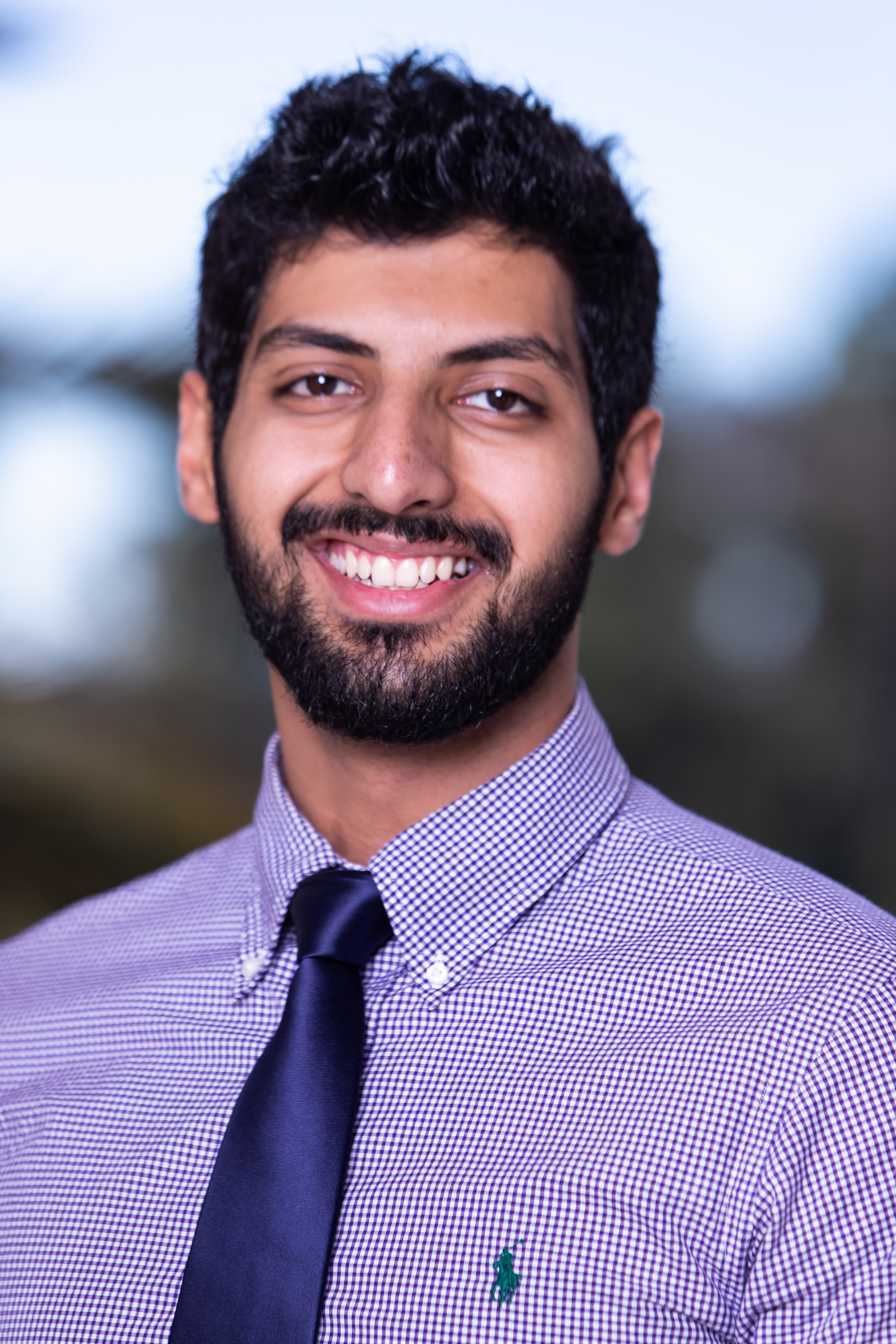
Image 1: Faisal Altassan (Cohort 6, UC Irvine, Electrical Engineering).
Could you tell us a little bit about where you come from?
I was born and grew up in Jeddah, Saudi Arabia, and I did all my primary elementary and secondary education here. When I was in high school, I heard all my friends were applying for the KGSP Scholarship in the US. At the time, I didn't really think about studying abroad, I just wanted to go to a university here in Saudi Arabia. But I thought I would try. So, I applied, and they got back to me for an interview. That was the first time I left Saudi Arabia.
Was your family supportive of you leaving home for the first time?
They were surprisingly very supportive. My father passed away when I was about 15, before my first year of high school, and I have two younger sisters. So, I thought about it a lot before I left, “Okay, should I do this?” My mother thought about it a lot, but I was surprised she was very supportive of it.
What were your initial impressions when you started studying in the US?
I thought I spoke good English in high school. But then, when I went to the US, I couldn’t even order lunch. It was different than what we learned here [in KSA]. It was a very eye-opening and interesting experience.
While studying as a Foundation Year Student at Rutgers University in New Jersey, it was my first time living without my family. I had two roommates in my apartment. Most of the classes we took were focused on college applications. English courses, SAT courses, and stuff like that. Then after that, we took some pre-college chemistry courses. But then, when I went to UC Irvine, that was a totally different experience because they do quarters instead of semesters. It took me more than a year to get used to the quarter schedule because it goes by very, very fast, and before you know it, you're doing midterms. And then, right after midterms, you're doing finals. It took me a long, long time to get used to the style of education in the US.
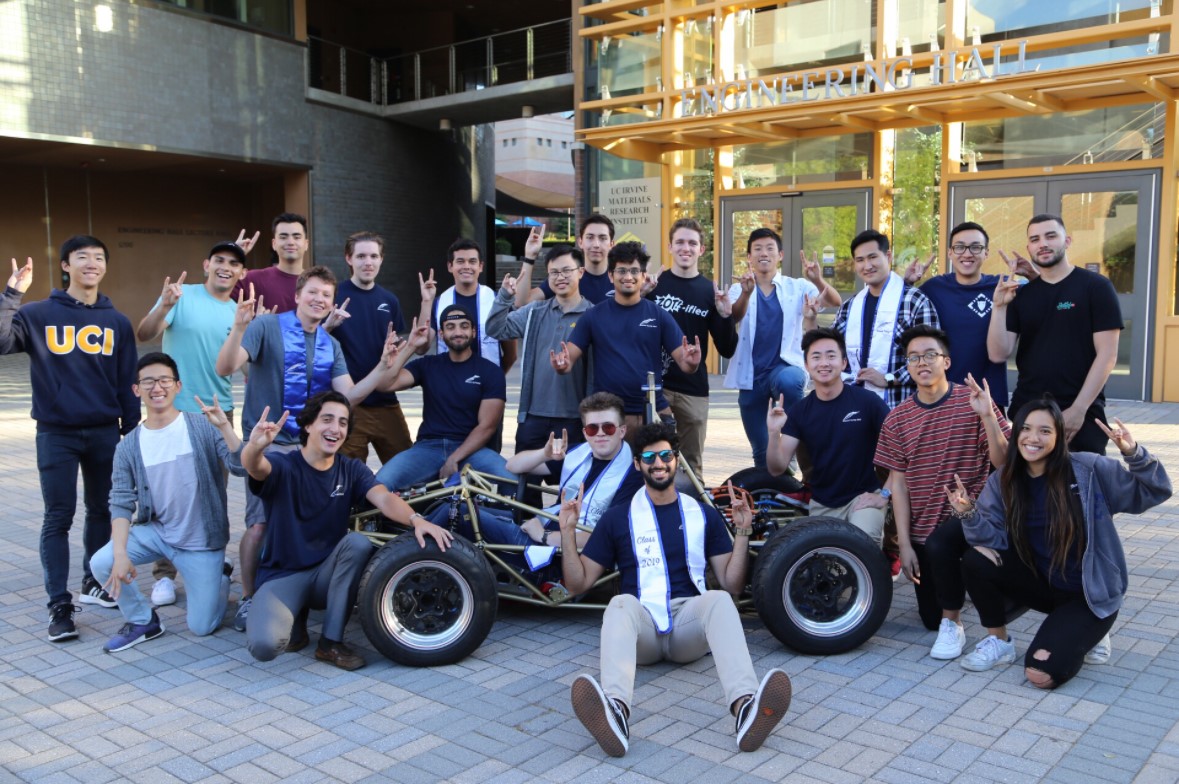
Image 2: Faisal Altassan (front center), with peers who worked on a racecar project at UC Irvine.
What adjustments did you make to become more accustomed to that pace and lifestyle?
Throughout the first year, I was trying to figure out how to manage my time. So, my number one priority was the courses that I took and school exams. Then, after that, I was trying to see what time I could fit in for my hobbies, sports, or working out. It took me some time, but I figured out that controlling the places where I stayed motivated me to do different things. If I went back home, it would be much harder to finish work, do homework, and study for the exams. After the first year, I spent way more time in the library, more time in the university gym, and more time on campus between classes. I would just go to the library or to the diner at the university to do my work there.
Did you have any mentors at UC Irvine who were particularly helpful?
There were a lot of people. The very helpful thing at UC Irvine was I was there with a lot of other KGSP students, and there were a lot of us with the same major. In my same cohort, there were three or four people who were taking the same classes together. We helped each other if there was something new, or if there was a class that we should take instead of another class. During my later years, I got into my senior design projects, and I got to know a lot of my professors and a lot of other students who were one year older than me. That guided me on the right path to where I should specialize in my major.
Did you notice anything in those mentors or those professors that you wanted in your life after graduation, or what kind of life you wanted to pursue?
In my graduation design project, I worked on an electric race car. The professor would bring other professors who knew a thing or two about building an electric car. I was talking to one of the professors after class about what kind of electronics we would have to build to make the car work. He told me to follow him into the parking lot where he showed me his old car. I think it was like an old Toyota or an old Volkswagen, but he fully converted it to an electric car, which at the time was mind-blowing. I didn't know that was even possible. He just opened the hood, and there was no engine. It was just an empty space with batteries on the bottom.
That was impressive because clearly that professor had a passion for the thing he does, and instead of just doing his normal job of teaching students, he was actually doing it as a hobby. So, I had the idea that it's possible to have a career and a hobby in the same field and mix them up together. Especially if you're in a you're passionate about, that would be a perfect life.
So, what happened after you graduated from UC Irvine? What steps did you start to take to achieve that kind of life?
After I graduated, I was just applying for jobs. I didn't have something specific in mind. To be honest, I just wanted something in my field because I did a lot of printed circuit board design in college. So, I was looking for something in the same field. Anything that said “electrical engineer” I would apply for. Sometimes I would have interviews and sometimes they would not get back to me, which is fine. Everyone goes through that.
Then, one of my friends told me about a startup at KAUST called NOMADD. I emailed the manager and said, “Hey, if you guys are looking for an electrical engineer, this is my CV. I just graduated. I'm looking for a job in Saudi Arabia.” He said, “Sure, come in for an interview.” So, I went there and saw the company was building robots that clean solar panels. At the time, I didn't know that existed. I thought usually in Saudi Arabia, you would give contracts to companies that are usually outside of the country, and then they would deploy the project inside of Saudi Arabia. I didn't know there were companies in Saudi Arabia that do development and manufacturing for this kind of hardware. I was immediately interested, and the company was interested in me, and I was eventually hired.
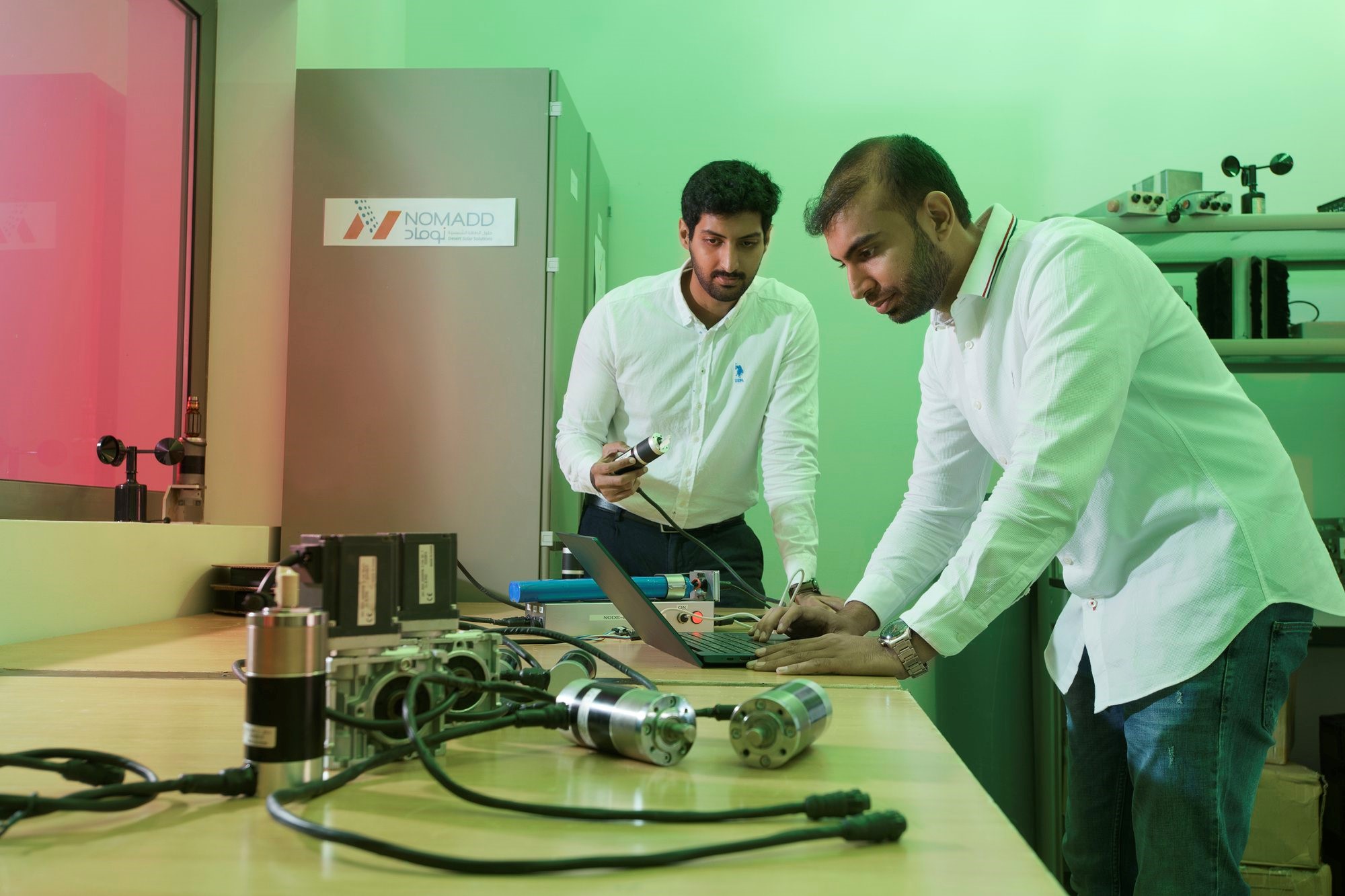
Image 3: Faisal (left) in a NOMADD lab.
It was a startup, so you get to do everything. I was exposed to a lot of mechanical work, electrical work, hardware, software, development testing, and manufacturing. I went to solar fields. I went to factories. I worked in the lab. I worked in the office. It was a very diverse experience and I realized that making hardware and electronics is something I wanted to steer my career toward.
I worked there for two years. I had a lot of growth, and it was a very wonderful experience. After that, I got the opportunity at NEOM to work as a robotics engineer which is close to what I was doing before. Except now, it's not a startup. One of my goals since I graduated was to work on one of the big projects that are associated with Vision 2030, and when I got the opportunity, I was very honored. I get to interact with a lot of the big projects that are happening in this country. It's an amazing experience.
Can you tell us a little about the work you are doing at NEOM? What makes you passionate about the work that you do?
My work is more technical. I work on a lot of the software that is related robots, and then I integrate it with the hardware. The company says we need a robot that does “X” thing. So, I need to start from there. How can we make a robot achieve this mission in the best way possible? “We need our work to look like this… We need a robot that's programmed in this way… We need this robot to be offline, or to be connected to work with other robots”. After that, we start the actual technical work, which is to get the resources we need, and then we start the development. We start putting the hardware and software together, start testing, and then finally deploy the project.
In a project like NEOM, where it needs to be very futuristic, you might need robots in fields that robots were never used in before. I wanted to make some kind of contribution to the future of my country. That's the thing that motivated me to work at NEOM In the first place, and that's the thing that motivates me to work every day.
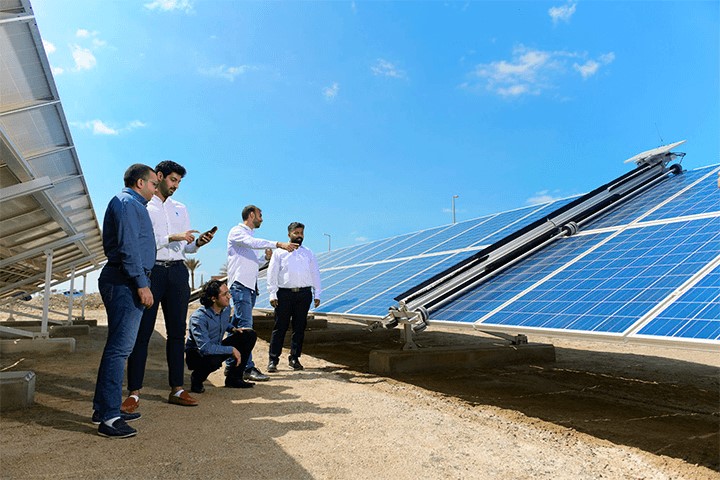
Image 4: Faisal (second from left) at NOMADD on KAUST’s campus.
How did your experience with KGSP influence where you are today?
Without KGSP, I wouldn't have had an amazing education in the United States. It has influenced me in more ways than I can think of, and I'm a very different person because of that experience. My colleagues in the KGSP program all have very big dreams and goals. And when you're in that environment, you're pushed to be on the same level as your peers and to push your boundaries.
If you could give the younger version of yourself one piece of advice, what would it be?
The best time to start is now. I remember in Rutgers I would usually say, “No, I can't do this… this is something that requires a lot of experience to do or something that requires a lot of education.” Because, at the time, most of the things that I wanted to do as a hobby or a small side project all seemed very intimidating. Like, “Oh, no, this has a lot of programming. I don't know how to program.” Or “This has electricity in it. I don't want to kill myself with electricity.” But now that I work in this field, most of the things that you need you can learn pretty quickly by yourself.
Programming is a very good example. I think programming is one of the things that nowadays anyone can learn. You do not need a formal education to know how to code. At the time, it seemed very intimidating, and I might need a computer science degree to program, which is not the case.
What are you looking forward to in the future?
I'm looking forward to just continuing to grow in my career field. Hopefully, sometime in the future, I look forward to starting a family.
